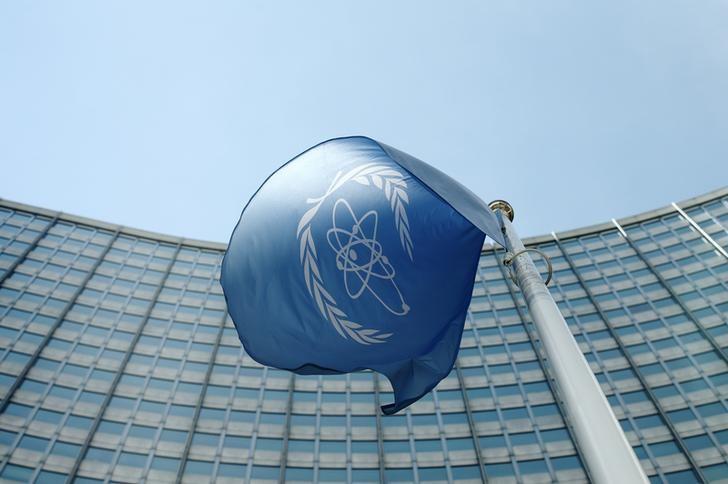
Pakistan continues to utilise the enormous potential of nuclear technology for the socio-economic development of the country and in order to realise the UN Sustainable Development Goals (SDGs), a press release issued by the Ministry of Foreign Affairs here on Thursday said.
“Pakistan continues to utilise the enormous potential of nuclear technology for the social-economic development of the country and in order to realise the UN Sustainable Development Goals (SDGs),” said the statement “Nuclear technology applications are being used in diverse areas of electricity generation, health, agriculture, hydrology, industry, environment, and basic sciences,” it added.
The Pakistan delegation participating in the IAEA General Conference, led by the Chairman Pakistan Atomic Energy Commission (PAEC), highlighted that 18 PAEC cancer hospitals in Pakistan were providing facilities in nuclear medicine to nearly one million patients annually and contributing to SDG3 on ‘good health & well-being’.
For SDG2 on ‘zero hunger’, the Agri & biotech institutes of PAEC had developed 111 different crop varieties and millions of acres had been treated through Integrated Pest Management (IPM). For the provision of ‘affordable and clean energy’, five nuclear power plants are currently operational in the country and two more are under construction (SDG 7).
The PAEC was also contributing to the goals of ‘quality education’ (SDG 4) and ‘industry, innovation & infrastructure’ (SDG 9) through promoting research and development in several training institutes. “These efforts have resulted in increased collaboration with CERN, including through manufacturing equipment for the world’s largest particle accelerator.”
Pakistan has assured the IAEA that Islamabad stood ready to further strengthen their partnership, including contributing to its efforts to build capacity in other countries. “Such partnerships are part of Pakistan’s science diplomacy initiative, which envisages international cooperation in science, technology, and innovation for socio-economic development and achieving the UN goals,” the statement concluded.
Addressing the 63rd IAEA General Conference on Thursday, PAEC Chairman Muhammad Naeem lauded the role of IAEA for allowing the use of nuclear technology to achieve SDGs. He added that the IAEA should continue promoting the development through the use of nuclear technology in mitigation, monitoring, and adaptation.
He warned that many developing countries, including Pakistan, remained vulnerable to adverse impacts of climate change. “Faced with a severe energy crisis, the decision to expand nuclear power programme was hardly a matter of choice for Pakistan,” he said, adding the nuclear power generation provided a cleaner, cheaper and more sustainable alternative for energy security.
“Pakistan has been reaping the benefits of nuclear power since 1972 in a safe, secure and safeguarded manner,” he said, adding that currently, five nuclear power plants are in operation and two 1100 MWe each near Karachi are expected to be connected to the grid in next two years.
“All civilian nuclear facilities in Pakistan are under IAEA safeguards without any exception,” he said. Pakistan’s national goal is to expand nuclear energy capacity to 40,000 MWe and to meet this target, he continued, Pakistan looked forward to the removal of the barriers for gaining equitable and non-discriminatory access for the international civil nuclear cooperation.
The PAEC Chairman appreciated IAEA’s Technical Cooperation Programme, in which Pakistan has always participated actively for mutual benefits and continues to remain a major beneficiary. He expressed the hope that the IAEA would continue to play its due role in coordinating international efforts to strengthen nuclear safety and security.
“Nuclear security is a state responsibility and in Pakistan, comprehensive nuclear safety and security regime has already been developed which is regularly reviewed and updated in the light of the IAEA guidance documents and international best practices,” he said.
“The Pakistan Nuclear Regulatory Authority (PNRA), set up in 2001, enjoyed complete independence which continued to review and update its regulations in light of extensive national experience and the IAEA standards. During preceding year three additional regulations were issued to this effect.”

1732437695-0/drake-and-charles-(1)1732437695-0-165x106.webp)


1732434981-0/BeFunky-collage-(10)1732434981-0-165x106.webp)
1732433856-0/Untitled-design-(6)1732433856-0-270x192.webp)
1732429143-0/BeFunk_§_]__-(44)1732429143-0.jpg)
1732428532-0/BeFunk_§_]__-(43)1732428532-0.jpg)

1732427746-0/Copy-of-Untitled-(2)1732427746-0-270x192.webp)







COMMENTS
Comments are moderated and generally will be posted if they are on-topic and not abusive.
For more information, please see our Comments FAQ